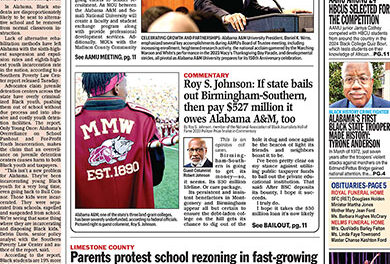By Mike Cason
Overtime pay would be exempt from Alabama’s state income tax under a bill that won approval this morning in an Alabama House committee.
The bill, by House Minority Leader Anthony Daniels, D-Huntsville, is one of many tax cut proposals pending in the Legislature. HB217 says earnings received by a full-time hourly employee for work performed in excess of 40 hours in a week does not count as gross income for purposes of the state income tax, which carries a 5 percent rate. Daniels said the chance for employees to keep more of what they earn would be a work incentive.
“This increases the workforce participation rate. But also provides an incentive for participating, experienced and trained workforce to work additional hours and be able to take home more,” Daniels said.
The House Ways and Means Education Committee approved the bill on a voice vote with no opposition. Several members of the committee praised the bill as innovative.
The committee added an amendment by Rep. Danny Garrett, R-Trussville, the committee chair, that would end the tax exemption after three years unless the Legislature extended it. Garrett said he supported the bill as an incentive to encourage work. He said the idea was new so it would be important to gauge its impact over time. The income tax is the largest source of state money for public education.
The fiscal note from the Legislative Services Agency estimates that the bill would reduce revenue to the Education Trust Fund by $45 million a year. But Daniels said employees would spend what they save from the tax exemption on goods and services that would add to sales taxes and other revenues, including those that support cities and counties. “So what you lose in income tax you actually gain some back in sales tax,” Daniels said.
The committee approved a second tax cut bill, HB117, sponsored by Garrett. It would expand an exemption to the state income tax for people 65 and older that applies to withdrawals from 401(k)-type accounts and individual retirement accounts, known as defined contribution retirement plans. The Legislature passed a bill last year to exempt up to $6,000 in defined contribution income for people 65 and older. HB117 would raise that to $10,000. It would reduce money going to the ETF by an estimated $13.7 million a year, according to the fiscal note.
Income from traditional pensions, called defined benefit plans, have been exempt from Alabama’s state income tax for decades, including those from both public and private employers. Garrett said HB117 is an example of targeted tax cuts the Legislature passed over the last few years. But defined contribution plans are taxable under the state income tax.











